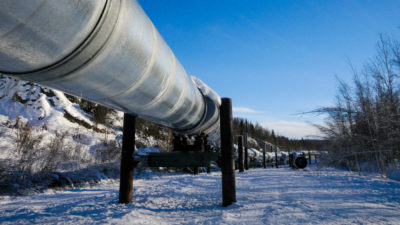The last year hasn’t been good for shareholders of Canadian Oil Sands Ltd. (TSX:COS).
It all started about a year ago when the company posted some lackluster results. Even though the price of oil was still strong, it was spending a lot on a new upgrader project and was struggling with high operating costs.
Then crude started its decline, and Canadian Oil Sands was hit particularly hard. The combination of the company’s high dividend, elevated operating costs, and additional debt taken on to finance the upgrader project were enough to send shares reeling, at least when compared with the rest of the sector. Over the last year the iShares S&P TSX Capped Energy Index Fund is down 38%, while Canadian Oil Sands has declined nearly 60%.
Now that the stock seems to have bottomed, is now a good time for investors to buy Canadian Oil Sands? Let’s take a closer look.
Pricing reserves
When pricing oil companies, there’s one big question: just how much are reserves worth in a world where crude trades at just US$60 per barrel?
If you’re taking the short-term view, it’s easy to say they’re not worth very much, especially for a company like Canadian Oil Sands. Operating costs are around $45 per barrel. Once you add in non-operating costs like royalties and depreciation, there isn’t much profit there. Breaking even isn’t a very attractive investment, even temporarily.
But on the other hand, there’s an argument to be made that reserves are underpriced at this level. Right now, once you combine the company’s market cap with its debt and consider only its interest in the Syncrude project, investors are paying just $7.1 billion for 1.6 billion barrels of proved and probable reserves. That’s not even counting the 2.1 billion in contingent and prospective reserves.
Think about it from the perspective of buying the whole company. For $7.1 billion, you’d be paying less than $4.50 per barrel of oil in the ground, plus a nearly new upgrading system. Remember, the company just paid more than $2 billion improve the upgrader. If we value the upgrading system at just $2 billion, investors are paying just $3.20 per barrel of oil.
There are pros and cons to investing in the oil sands. Yes, the equipment needed to extract the oil is expensive, but that’s largely offset by the lack of exploration risk. How many traditional producers have more than 30 years’ worth of proved and probable reserves just sitting there, waiting to be extracted?
Oil’s recovery
I’m a fan of Canadian Oil Sands’s fundamentals. It has a reasonable amount of debt, and the slowdown in the sector will give it an easy excuse to get costs down. It’s just a matter of waiting for crude to recover.
There’s the issue. Many investors were aggressively buying crude back in the winter, thinking a turnaround in price was just around the corner. This hasn’t happened, and there’s little indication that a recovery in crude is in the cards—at least, in the near term.
Essentially, an investment in Canadian Oil Sands is a bet on crude. If the price of the commodity recovers to US$80 or higher, there’s a good chance shares will increase 50-100%. The company will go from barely eking out a small profit at best to being profitable enough to once again pay investors a generous dividend.
Even if oil doesn’t recover right away, the company is still strong enough to weather the storm. With crude at current levels, the company should be able to generate enough cash flow to service the debt. That’s all you can really ask for during the slump.
Canadian Oil Sands is cheap, but won’t recover until crude heads higher. Still, if you’re looking for a way to play oil, you could do a whole lot worse.







